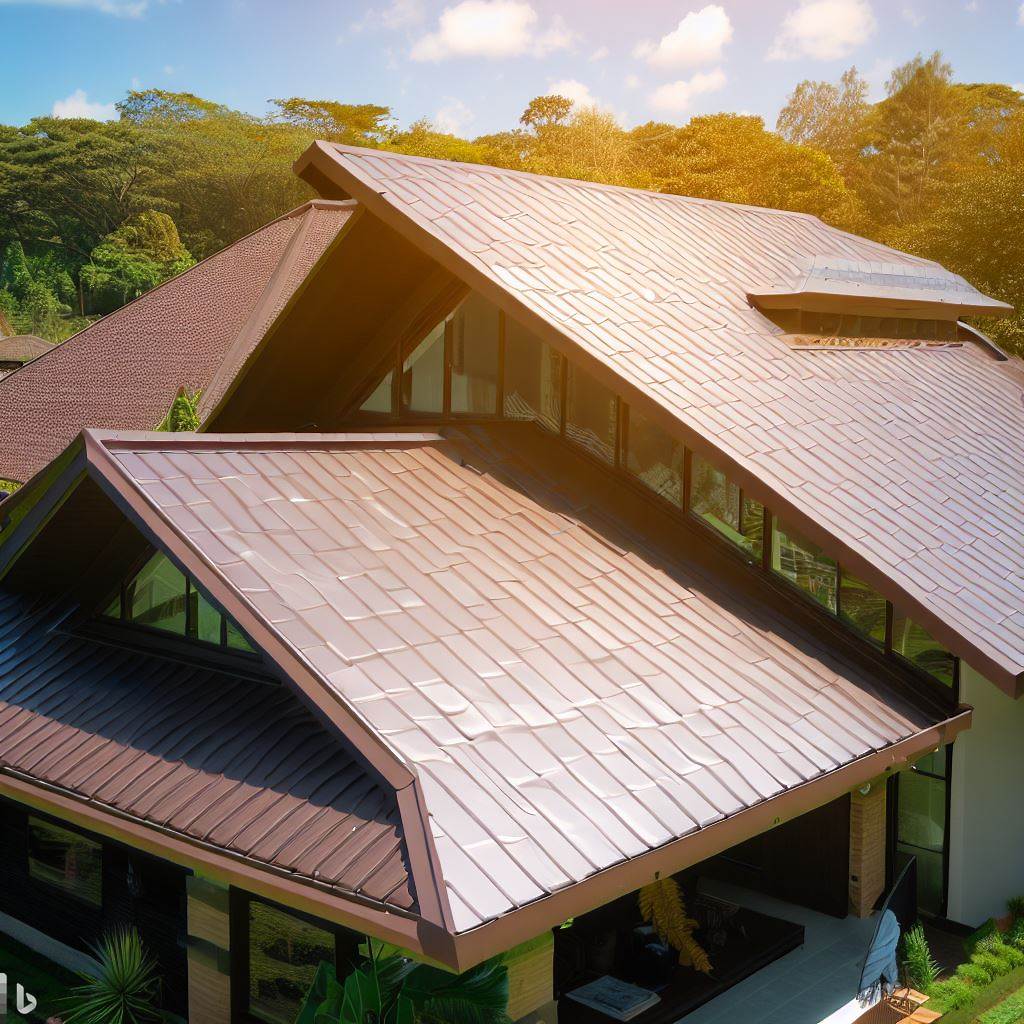
In today's world, where environmental consciousness and financial prudence go hand in hand, the importance of roof insulation cannot be overstated. The dual advantages of environmental benefits and financial savings make roof insulation a compelling choice for homeowners. This article delves into the myriad ways in which roof insulation contributes to a greener planet while also being a smart investment for your wallet.
Roof insulation plays a pivotal role in reducing our carbon footprint and promoting sustainability. Here's how:
By providing a barrier that prevents heat from escaping during winters and entering during summers, roof insulation significantly reduces the need for artificial heating and cooling. This translates to lower energy consumption, which in turn leads to reduced greenhouse gas emissions. A properly insulated roof can substantially cut down on your home's carbon emissions, contributing positively to the environment.
Urban areas tend to be warmer than their rural counterparts due to increased concrete and asphalt surfaces that absorb and radiate heat. Roof insulation helps mitigate the urban heat island effect by regulating indoor temperatures and reducing the demand for air conditioning. This not only creates a more comfortable living environment but also alleviates the strain on local energy grids.
By consuming less energy for temperature control, homes with roof insulation reduce the demand for fossil fuels. This conservation of natural resources plays a crucial role in safeguarding ecosystems and habitats that are disrupted by resource extraction. Choosing roof insulation is a step towards ensuring that future generations inherit a planet with intact ecosystems.
Less energy consumption means fewer pollutants released into the atmosphere. Roof insulation aids in curbing air pollution, which can have significant health implications for humans and wildlife. Cleaner air translates to better respiratory health and an overall improved quality of life.
Beyond its environmental advantages, roof insulation offers substantial financial savings that make it a wise investment:
One of the most immediate benefits of roof insulation is the reduction in energy bills. By minimizing heat transfer, your home remains cooler in summers and warmer in winters without excessive reliance on air conditioning or heating systems. This directly translates to lower monthly energy expenditures.
Homes equipped with energy-efficient features, such as roof insulation, often command higher resale values. In a market where sustainability is increasingly valued, a well-insulated roof can be a strong selling point. Potential buyers are attracted to properties with lower operational costs and reduced environmental impact.
While the initial cost of roof insulation installation may seem significant, it pays off in the long run. The insulation's durability ensures that you won't need to replace or repair it frequently. Over the years, the cumulative savings from reduced energy bills make up for the initial investment and more.
Many governments and municipalities offer incentives, rebates, and tax benefits to homeowners who invest in energy-efficient solutions. These incentives can significantly offset the cost of roof insulation installation, making it an even more financially viable choice.
Roof insulation reduces energy consumption, lowering carbon emissions and mitigating the urban heat island effect. This helps preserve natural resources and reduces air pollution, promoting a more sustainable environment.
Absolutely. While installation costs are upfront, the long-term reduction in energy bills, increased property value, and potential incentives make roof insulation a highly cost-effective investment.
Yes, roof insulation can be retrofitted into existing homes. Professionals can assess your home's structure and recommend the most suitable insulation type and installation method.
Incentives vary by location but often include rebates, tax credits, or grants. These incentives aim to encourage homeowners to adopt energy-efficient solutions like roof insulation.
Roof insulation is generally low-maintenance. However, it's essential to inspect it periodically for any signs of damage or wear and tear to ensure its effectiveness.
While DIY installation is possible, it's recommended to hire professionals. Improper installation can lead to gaps in insulation, reducing its effectiveness.
Roof insulation is a win-win solution that offers both environmental benefits and financial savings. By reducing energy consumption, lowering carbon emissions, and providing long-term cost efficiency, it's a valuable investment that contributes to a greener planet and a healthier wallet.
Whether you're looking to lower your energy bills, increase your property value, or make a positive impact on the environment, roof insulation stands as a testament to how modern solutions can address multiple challenges simultaneously. Embrace the power of roof insulation and enjoy a comfortable, sustainable, and economically sound living space.